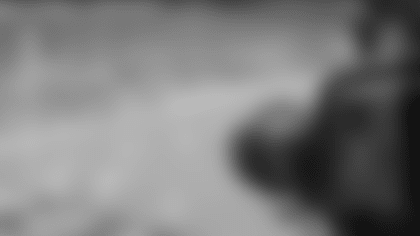BILL BELICHICK, HEAD COACH
CONFERENCE CALL
September 12, 2017
[wysifield-embeddedaudio|eid="590506"|type="embeddedaudio"|view_mode="full"]
Q: What stood out to you about the performance last night by the Saints? Did they look any different than the team you've seen before or conducted joint practices with in prior years?
BB: I think there were a lot of similarities in the game last night to what we've seen through preseason. There were definitely some differences and game plan kind of things. [They're] a very explosive team offensively. They have a lot of weapons, great quarterback, great coach, great system, a lot of depth at running back. Defensively – a pressure defense. Minnesota did a good job and hurt them on it a couple of times. We've got to be ready for it. [It was] a close competitive game that a couple of plays could've gone the other way. It was a good job by Minnesota in the red area. Had they not been able to keep New Orleans to those field goals it might have been a different story, but they were able to keep the points down and that was an important part of the game.
Q: What kind of impression did their rookie running back Alvin Kamara make?
BB: Yeah, a good back. [He] has a lot of versatility, can run the ball, a good receiver, can return kicks, tough in the open field, has a lot of skill. They have a lot of depth at that position. They're all good.
Q: How do their three running backs complement each other? Will the defense need to identify each time they swap the running backs and could that take on a more important role this week due to their varied skill sets?
BB: Yeah, definitely. They're all dangerous but they all have their different, I'd say, skill sets. You see Kamara out of the backfield more than [Adrian] Peterson for example. Again, they're all productive and I'm sure that New Orleans will do a good job of trying to get those guys opportunities in the things that they are good at, things that they do well. They're all hard to tackle. Peterson and [Mark] Ingram have a lot of power, really good balance, good lower body strength. Kamara's got that but maybe not quite as much but very elusive. No question - we're going to have to be alert for all of them and do a good job of handling each guy; the type of plays that might be specific to that player but also the skills that the player has.
Q: What are your thoughts on Adrian Peterson's career and how much background do you have with him individually?
BB: Well, enough. We brought him in here this spring. I've had some interaction with him. I have a lot of respect for him. I have a lot of respect for the way that he plays. I have a lot of respect for how hard he works, how important the game is to him. Those are the things that I admire about Adrian.
Q: What kind of a challenge does Cameron Jordan present on their defense?
BB: Right. Yeah, he's a really good player. He's a good pass rusher, good run player, smart, instinctive guy, hard to fool with misdirection plays, screens, things like that. He recognizes those well. As you said, he doesn't come off the field much and he's been a very dependable player and durable player for the Saints. We're going to have to do a good job of handling him. He's definitely a problem.
Q: How difficult is it to come up with a game plan that fits well with all of the new pieces you have at the skill positions on offense?
BB: There's some element of that every week in the National Football League. Every team is dealing with something and some circumstances and some unique situations about the game. We have ours and everybody else has theirs. I've seen weeks a lot worse than this one to be honest with you. We'll work our way through it and we'll be ready to go on Sunday.
Q: Will dealing with crowd noise and silent snap counts be a big part of practice this week?
BB: We always are prepared for that on the road. Yeah, it's the home opener down there. I'm sure there will be a lot of energy in the stadium. It's a great crowd. The Saints do a great job and they play very well at home, so I'm sure that will be a big challenge for us.
Q: How would you characterize Dennis Allen's defense and how do you think they will approach taking away Brandin Cooks given their familiarity with him?
BB: Well, I don't know what their game plan will be for Brandin. But we'll work on the things that we either have seen them do or anticipate that they might do against us and against some of the things that we do, so that's kind of what we would normally do with any defense that we play against. Dennis – I think he tries to put his players in position. He uses the skills of the players. He uses them well and guys that do certain things well, he tries to give them an opportunity to do that. They definitely will pressure the offense with linebacker and secondary blitzers and combinations of those blitzes – not just one guy coming, but sometimes two or even three at the same time. They do a good job of mixing it up. They do a good job of disguising their defense. Make it look like one thing and then it turns out to be something else. We're going to have to really do a good job of reading our keys and everybody being alert on every play and every situation. A lot of times, like I said, what it looks like the defense is going to play is something else. We've got to do a good job of being alert for what they're showing us and then making sure we confirm and see exactly what it is. That way we don't make a mistake during the play and get fooled by a disguise.
Q: What are your thoughts on Drew Brees and what stands out to you the most about his career?
BB: Tremendous production, five 5,000-yard seasons. They lead the league in offense in almost every year. He's a very good situational player, does a great job of doing the right thing that the situation calls for. He's a very instinctive player. He's got good mobility, good accuracy, good on the deep ball, good on short and intermediate balls, throws well on the run, good on deceptive plays like bootlegs and screens, goal-line passes, short-yardage passes, things like that, that don't come up of that often, but when they do, they are critical plays. [He's] one of the top players in the league. He's had a great career.
JOSH MCDANIELS, OFFENSIVE COORDINATOR
CONFERENCE CALL
September 12, 2017
[wysifield-embeddedaudio|eid="590511"|type="embeddedaudio"|view_mode="full"]
Q: What has it been like working with Brandin Cooks from the beginning of the offseason to now?
JM: Well, Brandin came in with a great attitude. He's worked extremely hard to learn his role or his jobs in our system and what we've asked him to do. He's been here every day. He's been on the field every day. He's a guy that is a very intelligent football player, certainly has a lot of skill. And, we're still getting used to all of the things that we could do with our entire group this year, but I think Brandin's really done everything we've asked him to do. He's been a guy that his teammates really enjoy being around, the coaches enjoy being around. He's a guy that you look forward to coming to work [with] every day and having an opportunity to work with, just like most of our guys. So, he's been really a great addition and we're looking forward to building as we go through the season.
Q: What stands out to you after watching the Saints defense?
JM: Well, even though we've practiced with them a few times and played them in the preseason, I'd say we don't know this team very well. Hopefully, we do a good job of getting acclimated to them and getting familiar with who we're playing against this week. They've got a lot of new players, whether that's through the draft or free agency, in each level of their defense. Certainly, they're aggressive. Coach [Dennis] Allen calls an aggressive style of defense. You know they're definitely going to pressure you with a lot of different people, different variations, blitzes. They mix the coverages up pretty good. They've got good team speed, they get to the ball, they play hard and they're going to, obviously, be excited for their home opener. This is always a tough place to play. So, it's going to be a big challenge for us to get familiar with the people that we're going to be matched up against across the board and really get used to their scheme and have a great week of practice and try to go down there and put forth our best effort.
Q: How difficult it is getting familiar with your own personnel when you have new players at many positions across the offense?
JM: I mean, it's the same every year at some point. I don't even really stop to think about that because each week, you have a group that's going to be active, whether that's by coach's decision or injury. You really can't control that, so you've got to do the best you can and put together the plan that you feel is going to work best that week against the team that you're playing and put your players in the right position to succeed. We've got a lot of good players and, whether they've been here for multiple years or a few months or, in some cases, a couple weeks, that's our responsibility. We're supposed to get used to them, learn what they can and can't do well, and then make sure that we put them out there and put them in position to do something productive for the team in their position. There's really no time to stop and think about that, and it doesn't really matter anyway because every team is dealing with the same set of circumstances at some point, at some position, somewhere along their roster, on their team during the course of the season.
Q: With three of the receivers you started the year with out due to injury, are you forced to discard the work you did in training camp and start over in preparation for this game?
JM: No, I mean, there's an element of your core fundamentals that you've worked on for many, many practices that you're going to lean on no matter what scheme you choose to use or employ that week. A lot of our practices are about building up our fundamentals and being able to be a good, technically-sound, fundamental football team and trying to go out there and then apply those techniques and fundamentals to whatever the scheme is that you think you need to use that week to win. Our guys have worked extremely hard, our coaches have worked extremely hard trying to build that base and that foundation. We're going to continue to do that – try to get better as we move through the season. But, there's a lot of things that we've worked on that are certainly going to be a part of our plan, and then there's going to be some things each week that we choose to either do or not do based on what we think of the scheme that we're playing, the opponent, the players they have, our matchups and so forth. Again, I've described this before, we have our bucket. They have their bucket. We've got to figure out how to best use our players, our scheme against what they do and their scheme and their players. And then ultimately, we also know that there's going to be a number of adjustments that are going to be made on Sunday anyway. So, you work hard during the week to make sure that your players feel good about what they're doing and what we're asking them to do on game day, and then you go out there and play as fast and hard as you can and you adjust as you need to.
Q: What type of conditioning adjustment is needed for players who did not play in the preseason but play a high number of snaps in the regular season? Does that affect their ability to play fast?
JM: Well, I think each year, we try to do the best we can of getting our team prepared to compete during the regular season. There's a process involved in that. Our strength and conditioning coaches or training staff, those guys work extremely hard starting in the offseason into the summer to make sure that we're ready to play when our regular season comes around. There's always, I would say, an adjustment period. There's always a period where you're trying to increase the work load or the rep count, so the guys are more acclimated to the load that they may have to play during the regular season because we don't play them the entire game in the preseason. But, I think we try to be smart about that. We try to use as many bodies as we can at the game and make sure that we don't overdo somebody if they're not ready to handle that kind of a load when the season hits. Like I said, you have to discuss that each week based on who you have, how deep you are at a certain position or how thin you might be at a certain position, and then try to dictate what you want to do based off of your overall depth at the game and what you think you can do with it.
Q: After watching the tape from the first game and being around Phillip Dorsett, what has stood out to you about how he has adjusted to the playbook and the culture here?
JM: Yeah, Phillip's come in and worked hard and he's really trying to study hard to get himself caught up as best he can. Now, we're into a game plan mode now, so it's less about maybe knowing every single thing in the past, and more about understanding what you need to do this week against this opponent, so we'll try to narrow that focus down for all our players. But, Phillip's attitude has been great. He works hard, practiced hard and he was ready to go when he went in the other night. We'll try to do the same thing with our group that's active this week. Just try to build on what we've done in the past, get him ready to go, make sure that we do the best with our repetitions this week in practice and our extra things we do after practice or whatever it might be, and then be ready to go and give them an opportunity to go out there and do the things that they do well.
Q: Is nonverbal communication something that players are able to pick up relatively quickly, or is it something that requires spending a lot of time with the same guys before it is smooth?
JM: I mean, it depends, I think, a lot on what you're talking about relative to who the people are and then how much you're asking them to do those things. Certainly, there could be an element of nonverbal communication that's necessary, but there's probably many people that go in the game that they play a role that that's really not a huge factor in what they need to be able to do. There's a difference between communicating and then doing the right thing once the ball is snapped and you've got to make a choice or what have you. So, I just think all of those things, our team is continuing to work on those things. This isn't just about one player, a new player, a person that's been here a long time, a short time. I don't think you can ever relax because, I would say, communication in general is a core fundamental that our offense needs to be good at at every level. And, if you ever stop and think that you've got it all figured out, then you're probably going to run into some problems. From the quarterback position to the line, tight ends, skill players, backs, receivers, it's something that we try to work on if it's necessary that week, and we'll continue to do that every week and never really kind of relax and assume that we've got it all handled and all understood. Because, again, those are some things that, if you ever let up, could come back and really haunt you if that's the case.
Q: When you go into a game with three healthy wide receivers, do you have to take that into account in game planning and factor in possible situations that could happen if another were to go down?
JM: It's really very similar to the answer I gave earlier. Each week, we have a bucket and we've got a certain group of guys that's going to be considered for the game, whether that be by choice or by injury. We understand that each week you don't have unlimited depth in any grouping offensively. You know, last week, we went to the game, we only had two tight ends. So, if a tight end gets hurt, then your two-tight end offense could be nonexistent at that point, unless you back it up somehow, some way with some other player that's at a different position that you're going to move there. So, we face this issue every week. You know, we only take seven linemen to the game, so there's not three backup tackles or four backup guard-center types at the game. There's only a guy here or there that can back up each spot, and then you have to build the depth in your game plan with what you have. There's no other way around that, so if you have a certain grouping that maybe you don't have as much depth in, you've got to make sure you're smart with how you use it and you can't put all your eggs in one basket. You never can in this league because you don't have an unlimited number of players in each game. You always have to have multiple personnel groupings. You always have to have contingency plans ready to go, which you hope that you build in during the week of practice so you're not making stuff up in the middle of the first quarter. Again, that's a very, very, very common occurrence in the National Football League for each team each week. So, what we're dealing with now, we're going to be dealing with in November, and so is every other team. They've got issues across the board that they have to make choices about and how they want to carry their depth on game day. May it be impacted by the kicking game or whatever the game may be, however you think the game's going to go or however you want to try to make the game go, then you do the best thing you can for the team. So, we're going to take our bucket this week and try to put the guys that are going to be active in a good position to do something that they do well and hopefully go out there and play our best football that we can.
MATT PATRICIA, DEFENSIVE COORDINATOR
CONFERENCE CALL
September 12, 2017
[wysifield-embeddedaudio|eid="590516"|type="embeddedaudio"|view_mode="full"]
Q: What do you see from Adrian Peterson and what are the challenges of trying to slow him down?
MP: Yeah, you know they have three outstanding backs. I think you got to see a good look at them last night. Then obviously the fullback, he's out there quite a bit too, John Kuhn. So you'll see him out there also. I think they use the backs in a variety of different ways. I think Coach [Sean] Payton and Coach [Pete] Carmichael do a good job of packaging them into roles they feel could give the defense the most trouble. Then they'll also run complimentary plays with them. There were a couple of packages where you might have two running backs in the game at the same time, some different looks there along with the fullback. So they really create a problem and they really try to identify a mismatch – whether it's a linebacker or something in the run game where they can out-leverage the defense with these guys. I think they do a great job with it. Adrian Peterson obviously is a great player. [He's a] big, strong runner who does an excellent job of really pressing the line of scrimmage before he gets his cuts and gets downhill into the line of scrimmage. I think a guy like this is a guy that can take the ball anywhere. He can go inside, he can go outside, he can cut it all the way back. [He] does a great job in space. He can jump cut out into that space and does a good job with the stiff arm and running through arm tackles and really does a good job of taking minimal opportunities and try to make them into big plays.
Q: What is the balance this week in terms of how much you want to match the variety of Saints personnel groupings versus how much you want to keep it simple for your guys so they can focus on some fundamentals?
MP: Well I think just in general going back to the original part of the question, like I said Coach [Sean] Payton and Coach [Pete] Carmichael do a great job of mixing and matching personnel groups in. We see it quite a bit week in week out from a lot of different offenses. I would say these guys do it quite a bit so you'll see different groups out there whether it's multiple running backs in the game or different wide receivers. They have a great wide receiver corps – Ted Ginn who just got there, you know, [Brandon] Coleman, [Michael] Thomas, guys that can rotate in and out. You're going to see a lot of different tight ends in the games. Obviously, [Coby] Fleener, who is in his second year there who's really starting to master this offense and be very productive. Josh Hill, who's another guy that will mix in there at the tight end position and really kind of does everything for them and then obviously Hoo-man [Michael Hoomanawanui], who we've got a lot of familiarity with, will be out there too. So the mixing and matching of those skill players – occasionally they'll throw an extra lineman in the game, the fullback. So the constant turning of that personnel is something they do an excellent job with and really have mastered the ability to kind of work in and out of those groups at a very quick pace. The pace of the offense here is very fast. They do a good job of getting in and out of the huddle. You know, then playing down there in their home stadium is where they're going to be able to communicate the best so we're going to have to do a great job of just really trying to get out there and play sound, play good fundamental defense. I think that's what we're trying to get done and we're trying to obviously play a heck of a lot better than we did last week and just go out and try to make sure we're more improving in those areas.
Q: How does the size of the Saints receivers challenge an opposing defense? What can smaller defensive backs do to make sure they're contesting those guys?
MP: Well I think definitely the size is something that they've done a good job of getting skill players that have what we call 'big catch radiuses' or guys that can go up and [get it]. Along with this offense that does a great job of stressing you from a horizontal standpoint, they do a good job of pushing the ball down the field. I think the big key is obviously the quarterback. Drew Brees is outstanding. He's an excellent quarterback not only in the cerebral sense and his ability to get into the proper play and change and audible and do all that stuff at the line of scrimmage, but when he throws the ball and he can get it downfield or he can really put the ball away from a defender, I think the big targets that he has allows him to place the ball away from maybe the coverage or the leverage or whatever the case may be. I think he does a really good job of finding those spaces and getting the ball to those guys. So having receivers that are longer and guys that can go make those sort of completions. You know, you saw [Coby] Fleener make one last night and throughout the course of whether you look at last year's tape or a couple years ago or through the preseason, their receivers have been able to make those catches. So it really allows the quarterback the opportunity to throw the ball up to them and gives those guys a chance to go up and get the ball.
Q: How has Coby Fleener evolved as a player and what in particular has New Orleans done with him in his time there that has allowed him to become an even better target for Drew Brees?
MP: Sure, I mean obviously he's an outstanding player. We've played against him here in the past and we have the utmost respect for him from those games that we've played. I think one of the things you see from the Saints standpoint, and a lot of it has to do with him in the system now and really understanding the concepts of what they do, but also the trust with the quarterback. I think the quarterback is definitely in a position where he's going to give him the ball and trust him to go up and make a good play whether it's tight coverage or situationally, certainly in the red area. And he is a big target. He has great speed. He runs good routes. I think the concept of what they're trying to do from an offensive standpoint is something that now they've been able to put him in good positions to make those plays. I think they kind of just keep expanding what they're doing with him and they'll move him around quite a bit. You're going to see him in there in a couple different personnel groups, different alignments. He's not always in one spot. He might be in there with a couple of the other tight ends. You've got to try and figure out his alignment from that standpoint. Or he might even be removed from the formation. You know, maybe in a position where they can motion him in or try to get him across the ball whether it's pre-snap or post-snap. So they've just kind of expanded all of those different roles that they've given him and he has been able to come through and make some plays for them and just kind of build his repertoire within that offense.
Q: Adam Butler and Deatrich Wise, Jr. made their NFL debuts on Thursday night. After watching the game tape, what stood out to you about their performances?
MP: Well those are two young guys here that we've been working with for a while and they've played a little bit through the preseason. I'd really say from Thursday, I think just in general I would say obviously everyone is trying to work hard to improve and get better. I would say that's where we're at with everybody, including myself. So hopefully we can get that done and we're obviously gearing up here for the Saints. We've got a huge challenge in front of us with some young guys playing for us and going down to their place down there in that environment is going to be a huge challenge for us.
Q: What do you think Adam Butler and Deatrich Wise did over the course of the summer that allowed them to stick with the team in September? What stood out to you about them?
MP: I think those two guys in particular, I would say for young guys that came in they worked extremely hard. I think from understanding the defensive concepts and some of the things we do from the mental part of the game, I thought they did a real good job of trying to understand it. [They are] two guys that we were able to kind of move around into different positions and take a look at from that standpoint, which is always good. It may not be where they play or it may not be necessarily where they end up week to week but being able to take some guys that are a little bit multiple that you can try to evaluate in different positions through the course of training camp allows us to get a different look at them. So that was one of the positives coming out of that.





































